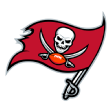Topics this week include quarterbacks who could be on the market in the coming offseason and how the demands that come with being an NFL coach can take a toll.
Quarterback market watch
As holiday shoppers make out their shopping lists, NFL teams already have theirs waiting, especially at the eclectic quarterback position, where teams have any number of ways in which they can spend their money.
The list of quarterbacks who could or will be available in the coming offseason is of a much higher profile than in the past, but each quarterback comes with his own questions. Still, the following is a list of QBs that teams such as the Bears, Jets, 49ers and others will be sifting through:

Tony Romo, Dallas Cowboys
Though Cowboys owner Jerry Jones has no plans to move on from Romo, many people around the league believe Dallas will end up doing so. If and when it happens, the return on Romo might not be as great as expected. A random sampling of general managers revealed that Dallas could probably get back some sort of mid- to late-round conditional pick for Romo. One general manager predicted that Dallas would get back a fifth-round pick that could improve to a fourth, and another general manager projected the Cowboys could possibly get back a conditional mid-round pick for Romo, which provides a snapshot of the type of compensation the Cowboys could get should Jones decide to deal him. Plus, there's this: The Jones family and Romo are so close that they are expected to work together to find a comfortable landing spot for him. And when Romo selects the team that he'd like to go play for, the team will be resistant to surrender any more than it has to, knowing that Romo has identified that franchise as the place he wants to continue his career.

Colin Kaepernick, San Francisco 49ers
Kaepernick is fully expected to void his contract after the season, allowing him to hit the market. Last offseason, the two teams that were most interested in him were Cleveland and Denver. After talking with the Browns, Kaepernick balked at going to Cleveland. As for Denver, the 49ers declined to pay about $4 million of Kaepernick's 2016 base salary, wiping out any chance that a deal would happen. But now Kaepernick can pick where he wants to go, and his decision will be among the offseason's most documented.

Jay Cutler, Chicago Bears
For the first time during his Chicago career, Cutler has no more guaranteed money left on his deal. Should the Bears decide to trade or release him, they'll take only a $2 million salary-cap hit, but also will clear up an additional $13 million in salary-cap space. Many around the league believe Cutler won't return to Chicago next season, so the real question is where he will surface.

Mike Glennon, Tampa Bay Buccaneers
Arguably the most attractive true unrestricted free-agent QB available, Glennon's name has come up in trade conversations and intrigued other teams before. But now that his contract is coming up, he'll be able to leave Tampa and go to the team that provides the best opportunity. Glennon is this year's Brock Osweiler, a player who is trying to parlay limited playing time into a big-time contract.

Kirk Cousins, Washington Redskins
It will cost Washington a lot to re-sign Cousins, who's on an expiring contract, but it will cost the Redskins even more not to get a deal done. Playing on a franchise tag, Cousins has leverage over Washington. Either Washington re-signs him to a monster-sized deal, or it's forced to put the franchise tag on him again to the tune of $23.943 million. It's hard to imagine that one of those things doesn't occur and that Washington allows Cousins to hit the free-agent market. But his cost is rising. As Cousins shouted last Sunday night, "How you like me now?"

Johnny Manziel, free agent
Manziel would still welcome the chance to play football again one day. There have been players who have turned around their lives and careers, and Manziel would like to do the same. The question is whether he'll get the chance. It could start in Canada, where he would get a chance to impress teams and try to earn another opportunity.
-- Adam Schefter
Challenges of coaching
Arizona Cardinals coach Bruce Arians' health scare early Monday wasn't his first, just as Denver Broncos coach Gary Kubiak's earlier this season wasn't.
Coaching has its tremendous benefits and blessings, but it also has its occupational hazards.
It isn't a new story. It just gets refreshed every time an incident becomes public during the season.
"It's a great job, but stress and the challenges to your lifestyle have something to do with it, no question," said Dan Reeves, a 23-year head coach who is now retired. "There's no way you can say it's not stressful. You worry about your family, you worry about players, you worry about people affected in the building, you worry about your staff and their families, and you do worry about the fans. Why? Fans are invested in the team, and when things go badly you feel like you've let them down, too."
Reeves endured heart problems when he was 46 and 54, the latter occurring in 1998, when he underwent quadruple bypass surgery in December. He missed all of two regular-season games and returned to guide the Atlanta Falcons to their first and only Super Bowl appearance. It's something that Tom Landry, who was his mentor as well as his former boss when Reeves was a player and assistant coach, might have frowned upon.
"I actually put into practice some of what Coach Landry did when I coached under him," Reeves said. "He wanted the staff to have dinner with your family and spend some time with your kids. He may have watched film at home after he did it, but he wanted us to have as normal a life as possible. He wanted us to be energized when we came into work, and we got there by 6 a.m.
"In fact, there were some memorable moments. One time another coach on staff bragged about watching film all night at the office. Mike Ditka was part of the staff then. When he heard that, as only Ditka can, he told that [assistant], 'It doesn't take as long for some of us to figure it out.'"
Reeves' good friend, Hall of Fame coach Joe Gibbs, was notorious for his all-night marathon work and for sleeping a good portion of the week in the office. Gibbs has openly expressed regret for those habits.
"Joe has told me he wished he had had a role model like Landry," Reeves said.
Tony Dungy had Chuck Noll with the Pittsburgh Steelers and later Dennis Green with the Minnesota Vikings.
"Coach Noll wanted us fresh, rested and high-energy, and Coach Green did, too," Dungy said. "Coach Noll didn't really want us in the office until 8 a.m."
It sounds absurd to anyone coaching in today's NFL.
"It's a lost cause to try and get any sanity and common sense back into the coaching profession," said Bill Polian, the Hall of Fame general manager who was Dungy's boss in Indianapolis. "Even though Tony made sure he and his staff managed their time well, they still worked 90 hours over a seven-day week in-season. Most staffs are working more than 100-hour weeks, I'd say. And they are fully engaged in work once the season ends until late June and part of July before training camp begins."
Polian tried to make sure coaches had access to the same healthy meals as players during the week, though he admits there were some "binge nights when we'd bring in fried chicken on a Thursday."
Aside from diet, getting coaches to stay physically fit is a challenge, but it's an emphasis for some. Reeves recalls some fierce racquetball games with Landry and Ditka.
It doesn't mean today's coaches ignore the necessities of a challenging lifestyle. It hasn't been public knowledge, but Miami Dolphins first-year coach Adam Gase has been known to hit the pause button for his staff around 5:30 p.m. to have a fitness time. It was a practice he first applied as an offensive coordinator in Denver and Chicago.
"I just didn't want guys to feel guilty working out, so if everyone is doing it, then no one thinks twice about it," Gase said.
That addresses a modicum of internal peer pressure. The external pressure, though, still drives the profession.
"If you don't work the ridiculous hours, the guys feel morally inept, like they're not doing everything they could do," Gase said. "Coaches are actually incredibly healthy, tough individuals, but the demands can be excessive without any checks and balances. Very few jobs are like this. Stockbrokers will talk about their long hours, but a lot of that is over long lunches or long dinners. Pilots, trial lawyers and some in the medical field are under this kind of pressure, and they burn out early, often by the time they're 45."
-- Chris Mortensen


